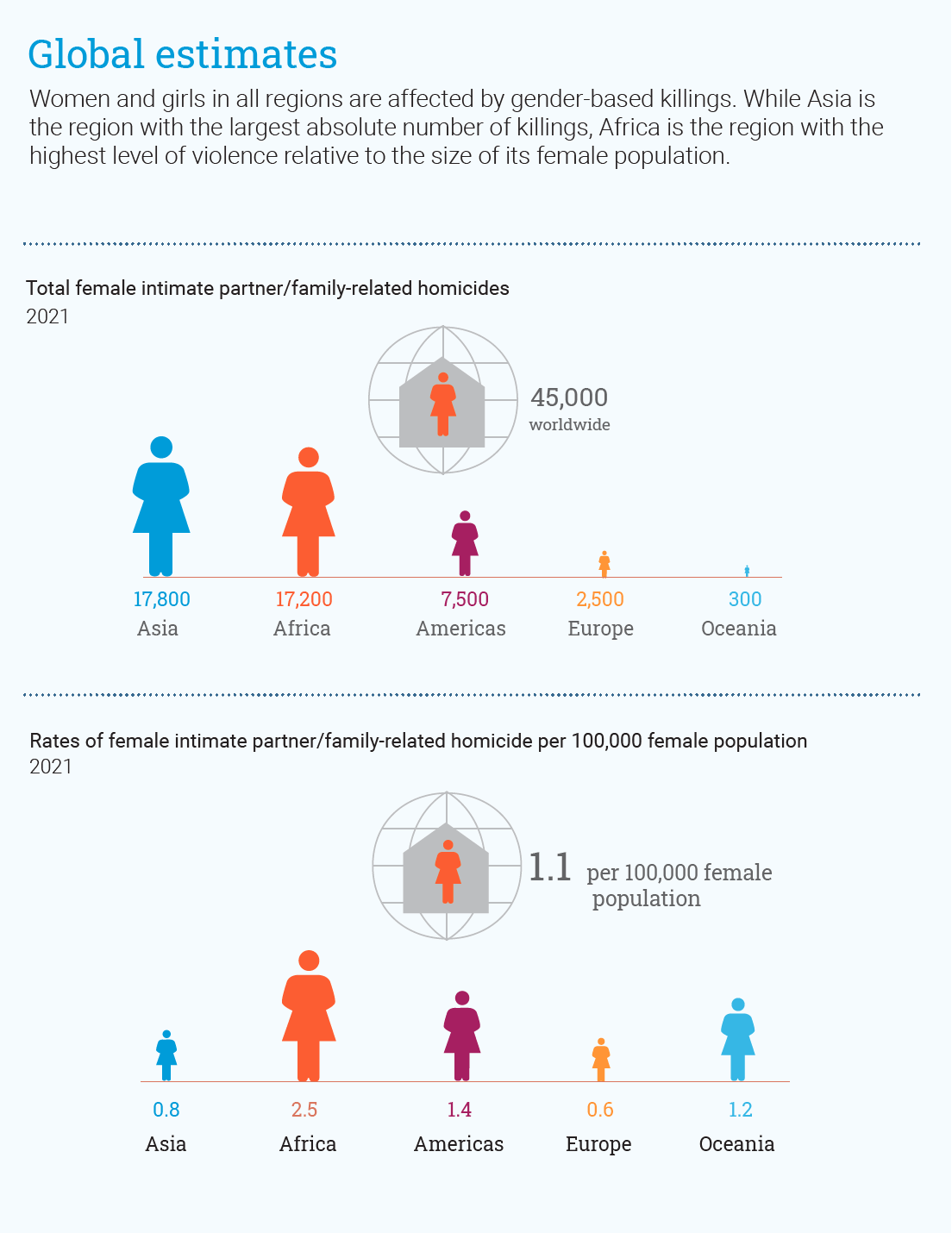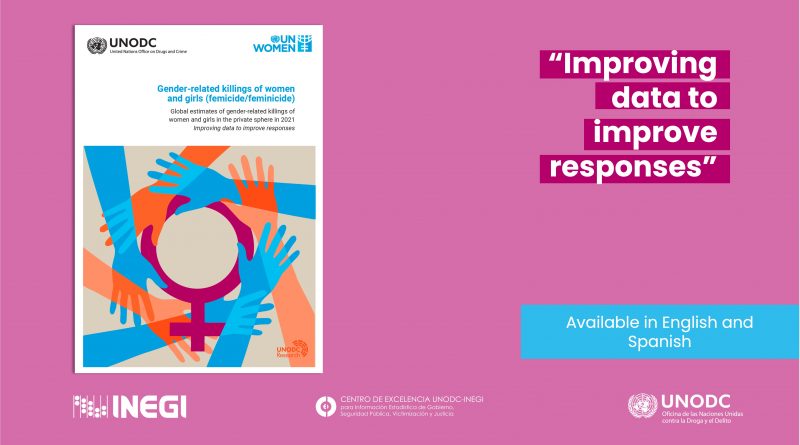Data Matters 5: Improving data to improve responses
In the context of the 16 days of activism against gender-based violence, the series “Data Matters” published the new document “Gender-related killings of women and girls (femicide/feminicide)”
 This report prepared by the United Nations Office on Drugs and Crime (UNODC) and UN Women highlight the importance of improving the availability and comparability of homicide data, by narrowing information gaps especially in regions such as Africa, Asia and Oceania, as well as the availability of disaggregated data in the registries such as sex on the victims or the victim-aggressor relationship, information crucial in order to be able to differentiate a homicide from a femicide because 4 in 10 four in ten female homicides have no contextual information to allow them to be identified and counted as gender-related killings (femicide/feminicide).
This report prepared by the United Nations Office on Drugs and Crime (UNODC) and UN Women highlight the importance of improving the availability and comparability of homicide data, by narrowing information gaps especially in regions such as Africa, Asia and Oceania, as well as the availability of disaggregated data in the registries such as sex on the victims or the victim-aggressor relationship, information crucial in order to be able to differentiate a homicide from a femicide because 4 in 10 four in ten female homicides have no contextual information to allow them to be identified and counted as gender-related killings (femicide/feminicide).
The Centre of Excellence works to promote good practices, because “by improving understanding of all types of gender-related killings of women and girls we can strengthen prevention and improve responses”.
The Statistical Framework to measure gender-related killing of women and girls (“femicide/feminicide”) developed by the UNODC and UN Women, supported by the UNODC-INEGI Center of Excellence on Statistical Information on Government, Crime, Victimization and Justice and the UN Women-INEGI Global Centre of Excellence on Gender Statistics, aims to harmonize the data collection that ensures international comparability of data on femicide/feminicide by providing definitions and identifying the “data blocks” that can characterize those killings that are gender motivated. UNODC will lead the adoption of this statistical framework worldwide.
To view the full report, please visit: /unodc/wp-content/uploads/2021/02/DATAMATTERS5_ENG.pdf



